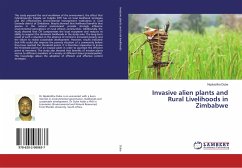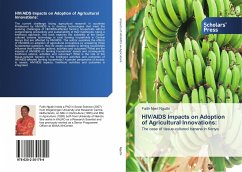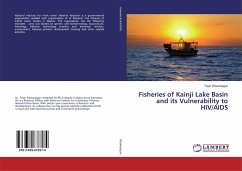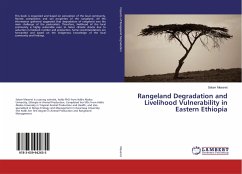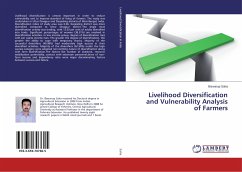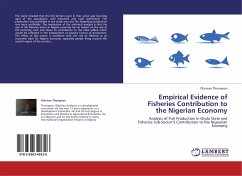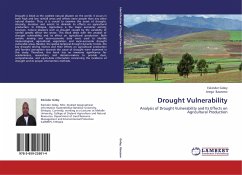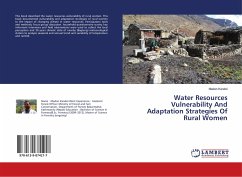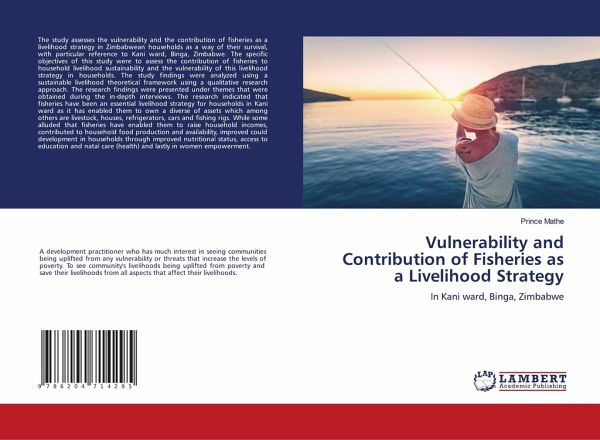
Vulnerability and Contribution of Fisheries as a Livelihood Strategy
In Kani ward, Binga, Zimbabwe
Versandkostenfrei!
Versandfertig in 6-10 Tagen
27,99 €
inkl. MwSt.

PAYBACK Punkte
14 °P sammeln!
The study assesses the vulnerability and the contribution of fisheries as a livelihood strategy in Zimbabwean households as a way of their survival, with particular reference to Kani ward, Binga, Zimbabwe. The specific objectives of this study were to assess the contribution of fisheries to household livelihood sustainability and the vulnerability of this livelihood strategy in households. The study findings were analyzed using a sustainable livelihood theoretical framework using a qualitative research approach. The research findings were presented under themes that were obtained during the in...
The study assesses the vulnerability and the contribution of fisheries as a livelihood strategy in Zimbabwean households as a way of their survival, with particular reference to Kani ward, Binga, Zimbabwe. The specific objectives of this study were to assess the contribution of fisheries to household livelihood sustainability and the vulnerability of this livelihood strategy in households. The study findings were analyzed using a sustainable livelihood theoretical framework using a qualitative research approach. The research findings were presented under themes that were obtained during the in-depth interviews. The research indicated that fisheries have been an essential livelihood strategy for households in Kani ward as it has enabled them to own a diverse of assets which among others are livestock, houses, refrigerators, cars and fishing rigs. While some alluded that fisheries have enabled them to raise household incomes, contributed to household food production and availability, improved could development in households through improved nutritional status, access to education and natal care (health) and lastly in women empowerment.




